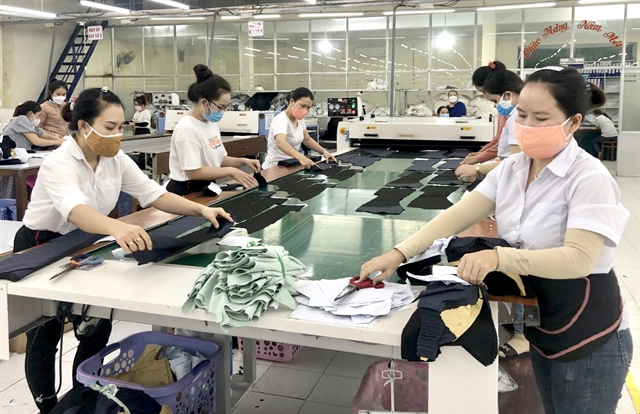.jfif) Opinion
Opinion

Lê Văn Hải, Director of Trọng Tín Accounting and Tax Consulting Company, Hà Nội branch, talks to Việt Nam Financial Times (Thời báo tài chính Việt Nam) about proposals that the Ministry of Finance reduce personal income tax (PIT) for labourers due to the impact of the COVID-19 pandemic.

|
| Workers at An Nhơn Textile Company in Bình Định Province. An expert said that it is unnecessary to reduce personal income tax for labourers. VNA/VNS Photo |
Lê Văn Hải, Director of Trọng Tín Accounting and Tax Consulting Company, Hà Nội branch, talks to Thời báo tài chính Việt Nam (Việt Nam Financial Times) about proposals that the Ministry of Finance reduce personal income tax (PIT) for labourers due to the impact of the COVID-19 pandemic.
Some say the Ministry of Finance should consider reducing personal income tax (PIT) for labourers affected by the COVID-19 pandemic. What is your view on this matter?
According to the provisions of the current Personal Income Tax (PIT) Law, only labourers with stable incomes from salaries and wages exceeding VNĐ11 million/month must pay an amount of tax based on the excess amount.
On the other hand, the time of calculation of PIT is the time when the labourer is paid, that is, when receiving wages and salaries of more than VNĐ11 million/month (for those who have no dependents) and over VNĐ15.4 million/month (for those obliged to take care of one dependent).
For workers affected by the COVID-19 pandemic, their income has also been reduced to a very low rate, or even completely, let alone the amount of VNĐ11 million. Compared with the current PIT policy, I personally think a reduction of PIT for labourers affected by COVID-19 is not necessary because it does not promote the full effectiveness of the tax policy in supporting affected labourers.
Moreover, because the beneficiaries of this policy are few, the goal is difficult to achieve, not to mention the additional administrative procedures and costs for changing the tax declaration system of the tax authority at all levels. It would be wasting the nation's resources.
Recently, the Ministry of Finance has submitted to the Government to promulgate many support policies for taxpayers. In your opinion, how effective are these policies?
In order to perform key and urgent tasks, the whole political system agreed, made efforts to promulgate and implement many policies to support employees affected by the COVID-19 pandemic, including the key role of the Ministry of Finance through tax policies. This has contributed significantly to supporting labourers through direct support, or indirectly through businesses, to promptly solve difficulties for labourers in the short term.
With a series of supportive policies, labourers have overcome difficulties during the time they had to stop working to follow the requirement on social distancing. These policies have helped millions of labourers stabilise their lives to come back to work when the pandemic is over.
To support workers affected by the pandemic, besides tax policy, do you think other support policies are needed?
I think that, in addition to tax policies, the Government needs to have other major programmes to recover and develop the economy in the coming difficult period. That can be a number of other programmes apart from public investment policies for economic development.
These include programmes on disease prevention and healthcare that are carried out from the central to local levels. These programmes should be proactively and flexibly implemented depending on the actual situation of each locality; ideas and methods of pandemic prevention and control should be disseminated widely so that every citizen is a soldier fighting against the pandemic.
Social security programmes for economic recovery are also needed, such as pandemic prevention and control to ensure social security, and researching and expanding the number of beneficiaries of social policies. We should also disseminate welfare policies to all people through the media such as social networks, newspapers, radio and mass organisations, so that labourers can know and actively ensure their own interests.
There must be also programmes to support labourers indirectly through individuals and organisations with financial and tax policies such as tax reductions, tax extensions, etc. These taxes should be expanded to essential goods, healthcare, social security, and industries with large numbers of labourers. In addition to tax incentives, financial and monetary policies also need to be considered and implemented through loan incentives like preferential interest rates. VNS